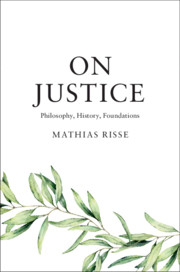Book contents
- On Justice
- On Justice
- Copyright page
- Contents
- Acknowledgments
- Introduction
- 1 Apologia for Justice
- Part I Political Philosophy
- 2 Political Philosophy as a Vocation: Seven Approaches
- 3 Political Philosophy as a Vocation: Seven Approaches, Continued
- 4 Global Thought: Political Philosophy in the World Society
- 5 Global Thought: World Society, Cultural Imperialism, White Ignorance
- 6 Half a Century after Malcolm X Came to Visit
- Part II Distributive Justice
- Part III The Grounds of Justice
- Bibliography
- Index
6 - Half a Century after Malcolm X Came to Visit
Reflections on the Thin Presence of African Thought in Global Justice Debates
from Part I - Political Philosophy
Published online by Cambridge University Press: 18 September 2020
- On Justice
- On Justice
- Copyright page
- Contents
- Acknowledgments
- Introduction
- 1 Apologia for Justice
- Part I Political Philosophy
- 2 Political Philosophy as a Vocation: Seven Approaches
- 3 Political Philosophy as a Vocation: Seven Approaches, Continued
- 4 Global Thought: Political Philosophy in the World Society
- 5 Global Thought: World Society, Cultural Imperialism, White Ignorance
- 6 Half a Century after Malcolm X Came to Visit
- Part II Distributive Justice
- Part III The Grounds of Justice
- Bibliography
- Index
Summary
During the year before his assassination, Malcolm X fashioned himself into an ambassador-at-large for black America. His message to leaders of newly decolonized countries in Africa was that black leaders should appropriate the systems (the human rights framework) that had initially been forced upon them but now were theirs as much as they belonged to anybody. But one question is whether such a move adds the insult of intellectual surrender to injuries of subjugation, particularly where local traditions were overpowered relatively recently. For such cases, the account in Chapter 5 must be supplemented. I do so by exploring what it would mean for there to be a genuinely and legitimately global discourse on justice that involves Africa (or other once colonized regions) in authentic ways. The account from Chapters 4 and 5, enriched by Flikschuh’s idea of philosophical fieldwork, allows us to explain what this would mean.
- Type
- Chapter
- Information
- On JusticePhilosophy, History, Foundations, pp. 111 - 122Publisher: Cambridge University PressPrint publication year: 2020

